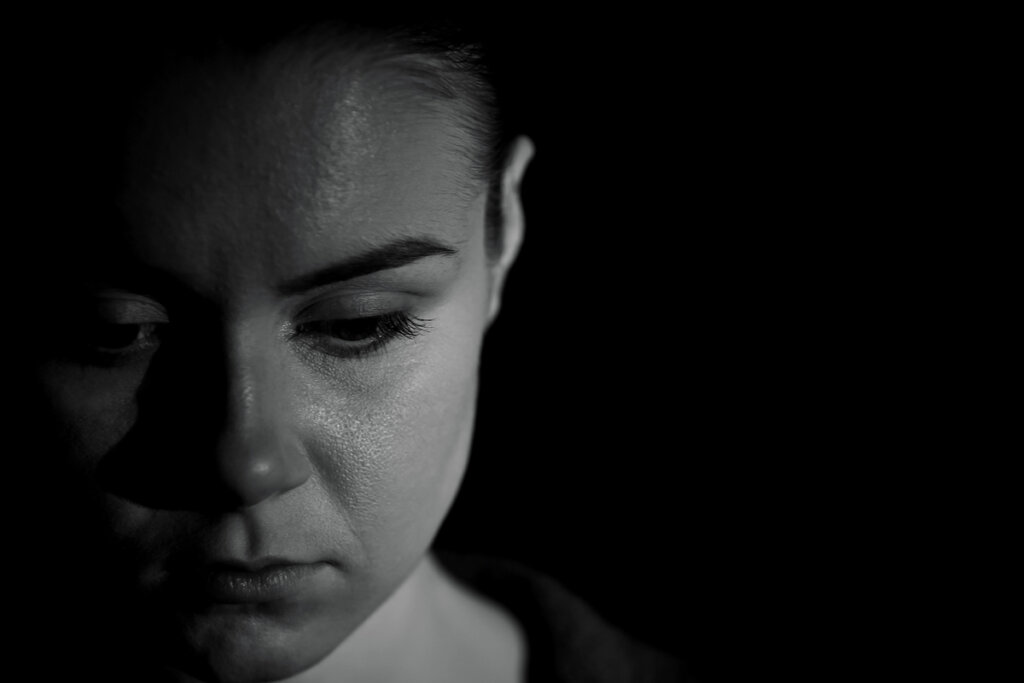Life After Trauma


Written and verified by the psychologist Andrea Pérez
Your days go by as always. You go to work or classes. You occasionally hang out with your friends. Your life with your partner, if you have one, seems to be fine. You have a more or less stable routine. Everything is normal. Then, suddenly, something happens that completely transforms your life.
It could be the death of a close relative, an attack by a stranger, or an accident. The causes are extremely varied and can occur at any time in your life. However, they have one thing in common. They all bring your life, as you knew it, to an end. Trauma arrives and turns everything upside down.
Traumas are common and can appear at any age. It could be said that we all carry one or even several around with us. It occurs when we witness or experience an unexpected and unpleasant event that leaves lasting scars that penetrate our minds.
Trauma doesn’t have to be an episodic event. In fact, it’s possible that it might arise after experiencing an unpleasant situation that you haven’t fully assimilated over time. Inevitably, the existence of trauma conditions you, both consciously and unconsciously. That said, if you know how to live with it and it doesn’t affect your quality of life, you don’t have to worry.
It becomes a problem when trauma becomes the protagonist of your emotional state. Whatever the original reasons for its occurrence, the traumatic shock begins to hold so much weight that it starts to take you over. Then, physical and mental responses arise that disrupt your life. The wheels that turned smoothly and moved your daily life get stuck and don’t allow you to continue with the kind of fluidity you like.

The hidden monsters that accompany trauma
We’re all unique. Therefore, trauma affects us all differently and we respond in different ways. In fact, only the individual who’s living through it knows what’s happening inside them. Some people respond with character changes or alter the way they relate to their surroundings. They may also experience physical symptoms such as muscle tension, insomnia, or palpitations.
Others reject everything that even slightly reminds them of the traumatic event. In effect, their mind blocks their memory of the event completely. On the other hand, there are those who repeatedly remember it. Some resort to dissociation, and mentally separate themselves from the pain that the event caused. Moreover, intrusive thoughts may arise at the most unexpected moments. Or, disorders such as depression may appear. Each individual unconsciously adopts the defense mechanisms that best help them survive the traumatic event.
However, there are some negative feelings that are common to all people dealing with a traumatic event. They’re like little monsters. They accompany those of us who are dealing with trauma but are often invisible to others.
Guilt
Guilt is often a frequent companion in the experience of trauma. Sometimes, you might blame yourself for having experienced the event that caused you trauma. You might take responsibility for not having avoided it. When this happens, guilt and regret are your content companions. While you’re not guilty of the trauma you’re living with, your mind thinks you are.
This is one more mechanism that your brain has to cope with. You feel that, if you’re the culprit, you’ll be able to put an end to the way you feel. For example, if you’ve been a victim of abuse or sexual assault, you might find yourself saying “If only I’d broken off the relationship with them earlier”, “If only I’d stopped them” or “If only I hadn’t gone out that night”. These are unconscious thoughts that often afflict victims of traumatic events. It also doesn’t help that society too frequently places blame on victims of these kinds of crimes.
Guilt can even show up during your recovery time. In fact, as you’re striving to resume your life and the kinds of activities that give you pleasure or fun, guilt might appear. It lurks around, falsely reminding you that you don’t deserve to laugh or enjoy yourself again. It can even paralyze you and make you believe that you really don’t deserve anything good to happen to you.
Therefore, it’s essential to deal with it in your recovery process. In fact, addressing your feelings of guilt after trauma in a psychological consultation will be especially useful. A psychologist will be able to help you become aware that you’re not guilty of the damage that’s been caused to you. However, you’re responsible for how you handle it and, over time, you’ll be able to forgive yourself and accept that you’re worthy of resuming your life.
Loneliness and misunderstanding
It’s common for social anxiety to appear after a traumatic shock. It occurs when you anticipate the possibility that you’ll find yourself in another situation similar to the traumatic event. Moreover, loneliness isn’t always physical. Feeling emotionally alone, without support to count on, and being misunderstood by others adds to your trauma.
Indeed, when other people in your environment haven’t experienced what you’ve experienced, you may feel that they won’t understand your pain. You might think that it’s useless explaining your feelings to them since they won’t understand them. However, while it’s true that there are some events that only those who’ve experienced or suffered from can understand, it’s also true that your environment seeks to support you. That said, it needs your help to do so.
Your family, friends, partner, or the person who wants to help you have to take responsibility for accompanying you without putting pressure on you. They must respect your boundaries and listen to you. On the other hand, you also have the responsibility to communicate with them and guide them as much as possible with regard to how they can help you and make your journey more bearable.
Having contact and exchanging experiences with people who’ve experienced the same thing as you can be really beneficial and help you feel understood. Therefore, going to support groups will offer you many benefits. There, you can exchange opinions and experiences with people who know first-hand what’s happened to you. Those who are in a more advanced recovery process will be able to advise you with their experiences. In short, in addition to accompaniment and understanding, you’ll be able to broaden your vision and perspective on what happened and learn how to deal with it.
Shame
Shame is a frequent companion to guilt and loneliness. You might find yourself saying “I feel so guilty and ashamed” or “I’m ashamed to confess my experience to anyone in case they judge me and emotionally isolate me from my environment”.
Excessive shame reduces your social capacity and self-esteem, to the point that you feel you’re not valid and you start to question yourself. It can be a significant handicap and sometimes lead to a setback in your recovery process.
Shame is universal. No one likes to feel judged or criticized and it makes us react. But, although there’ll be people who’ll criticize you, there’ll also be those who empathize and will be a great help when it comes to managing your feelings.
Understanding what leads you to feel ashamed or what situations make this feeling emerge more strongly are starting points to overcoming it. It may never go away completely, and your personality will play an important role here. That said, you can control it and not let it dominate you.

The road is long, but it has an end
Resuming your life after trauma is neither simple nor quick. Like a giant octopus, trauma has many tentacles and affects many facets of your life. It’s not enough to cut them off. Gradually, with patience, perseverance, and effort, you must separate the suction cups that are imprisoning you. To do this, you need help.
Psychological therapy is an indispensable ally in overcoming trauma and its consequences. Addressing those tentacles that have paralyzed your life means you’ll be able to work with different techniques. They’ll help you accept what’s happened to you and learn to handle it. Eventually, the day will come when the pressure stops hurting and you’re able to return to normal life.
All cited sources were thoroughly reviewed by our team to ensure their quality, reliability, currency, and validity. The bibliography of this article was considered reliable and of academic or scientific accuracy.
- Buesa, S., & Calvete, E. (2013). Violencia contra la mujer y síntomas de depresión y estrés postraumático: el papel del apoyo social. International Journal of Psychology and Psychological Therapy, 13(1),31-45.[fecha de Consulta 16 de Noviembre de 2022]. ISSN: 1577-7057. Recuperado de: https://www.redalyc.org/articulo.oa?id=56025664003
- Carvajal, César. (2002). Trastorno por estrés postraumático: aspectos clínicos. Revista chilena de neuro-psiquiatría, 40(Supl. 2), 20-34. https://dx.doi.org/10.4067/S0717-92272002000600003
- Wainrib, B. R., & Bloch, E. L. (2001). Intervención en crisis y respuesta al trauma. Bilbao: Editorial Desclée De Brouwer.
This text is provided for informational purposes only and does not replace consultation with a professional. If in doubt, consult your specialist.








